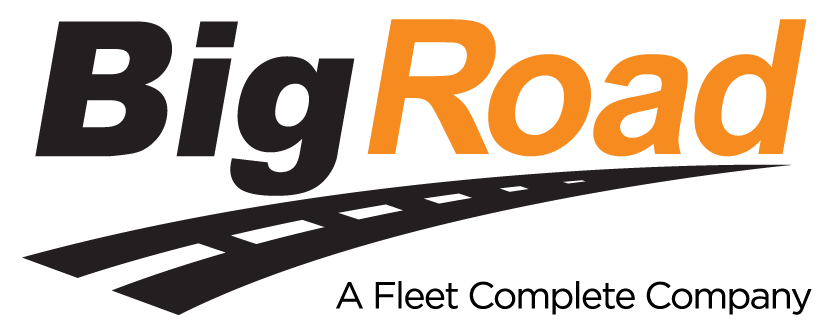Following my previous blog regarding FMCSA granting a waiver for expiring commercial driver’s licenses & permits, I have been getting questions regarding drug and alcohol testing regulations amid the COVID-19 pandemic. For your benefit, please read the following U.S. Department of Transportation (DOT) new guidance.
https://www.transportation.gov/odapc/compliance-with-dot-drug-and-alcohol-testing-regulations#_ftn2
The purpose of this guidance is to provide clarity to DOT-regulated employers, employees, and service agents on conducting DOT drug-and-alcohol testing, given the concerns about COVID-19.
The new guidance on compliance with the DOT and drug and alcohol testing programs will apply while the U.S. is under the National Emergency Declaration.
DOT-Regulated Employers must:
- Continue to comply with applicable DOT training and testing requirements, as found in 49 CFR Part 40 https://www.transportation.gov/odapc/part40.
NOTE: DOT recognizes that compliance may not be possible in certain areas due to the unavailability of specific program resources needed to complete DOT drug-and-alcohol testing.
- Make a reasonable effort to locate the necessary DOT drug-and-alcohol testing resources.
- Consider mobile collection services for required testing if the fixed-site collection facilities are not available.
- Document why a DOT drug-and-alcohol test was not completed, if you are unable to conduct DOT drug or alcohol training or testing due to COVID-19- related supply shortages, facility closures, State or locally imposed quarantine requirements, or other impediments.
- Conduct training or testing later if you are able to do so in accordance with 49 CFR Part 382.
- Evaluate the circumstances of the employee’s refusal to test and determine whether the employee’s actions should be considered a refusal as per 49 CFR § 40.355(i).
- Be sensitive to employees who indicate they are not comfortable or are afraid to go to a specific clinic or collection site due to the COVID-19 outbreak.
- Verify with a specific clinic or collection site that it has taken the necessary precautions to minimize the risk of exposure to COVID-19.
- Revisit back-up plans to ensure the plans are current and effective for the current outbreak conditions. These plans should include availability of collectors and collection sites and BAT, and alternate/back-up MRO, as these may have changed as a result of the national emergency.
- Have regular communications with service agents regarding the service agent’s availability and capability to support a motor carrier’s DOT drug and alcohol testing program.
DOT-Regulated Employees must:
- Contact your medical provider and, if necessary, let your employer know about your availability to perform work, if you are experiencing COVID-19-related symptoms.
- Discuss any COVID-19-related concerns about testing with your employer.
NOTE: It is the motor carrier’s responsibility to evaluate the circumstances of DOT-Regulated Employee’s refusal to test and determine whether the employee’s actions should be considered a refusal according to 49 CFR § 40.355(i). In all instances, the motor carrier is to document all the specifics regarding a DOT-Regulated Employees DOT drug and alcohol testing program.
Service Agents must:
- Continue to provide services to DOT-regulated employers if it is possible to do so in accordance with State or local mandates related to COVID-19 as a Collector, Breath Alcohol Technician (BAT), Laboratory, Medical Review Officer (MRO), or Substance Abuse Professional (SAP).
- Follow your company policy, directions from State and local officials, and guidance from the Centers for Disease Control and Prevention (CDC), should you have concerns about COVID-19 when testing or interacting with employees.
DOT-Regulated employers, their employees and service agents are encouraged to continue to monitor guidance from public health officials and to refer to official government channels for additional information related to COVID-19.
The Centre for Disease Control (CDC) also provides helpful guidance and insight from medical professionals who are closely monitoring COVID-19. The latest CDC updates can be found at:
https://www.cdc.gov/coronavirus/2019-ncov/index.html
Another excellent reference is the Occupational Safety and Health Administration (OSHA). OSHA has released specific guidance on preparing workplaces for COVID-19 that can be found at:
https://www.osha.gov/Publications/OSHA3990.pdf
For specific U.S. DOT procedures for transportation workplace drug and alcohol testing programs, please refer to the following link:
https://www.transportation.gov/odapc/part40
For more information on who gets tested and when, along with the specific drug and alcohol-related training requirements, please reach out to:
Juan Moya
Drug and Alcohol Program Manager
Office of Enforcement and Compliance
Federal Motor Carrier Safety Administration (FMCSA)
Washington DC 20590
Email: [email protected]
Phone: 202-366-2096
Fax: 202-366-7908
DISCLAIMER
Complete Innovations Inc. (hereinafter referred to as “Fleet Complete”) makes no representations or warranties about the accuracy or suitability of any information contained within the Ask the Expert blogs (the “Blogs”) or materials referenced therein (“Related Materials”) – and all such information and Related Materials is provided to Blog readers on an “as is” basis. Fleet Complete hereby disclaims all liability for any claims, losses, or damages in connection with the use, application, accuracy or suitability of any information in any Blog and Related Materials. Fleet Complete does not recommend, guarantee, warrant, or endorse the products or services of any firm, organization, or person, or contents of the third-party site(s). The information contained in the Blogs and Related Materials is not intended to constitute legal advice or the rendering of legal, consulting, or other professional services of any kind. Readers of the Blogs and Related Materials should not in any manner rely upon or construe the information or resource materials included therein as legal, or other professional advice and should not act or fail to act based upon the information in these Blogs and Related Materials without seeking the services of a competent legal or other professional.
